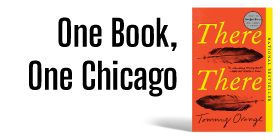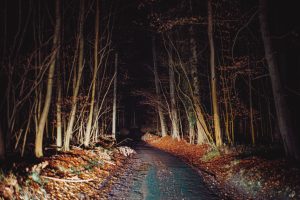Over the past few years, a renaissance of new Indigenous horror and thriller fiction has emerged on the top of the bestseller lists. Many of these books depict Indigenous characters trying to survive both a supernatural evil and the real evil of colonialism. Some authors even use their books to speak on issues specific to Indigenous populations, using critical topics within their fiction to draw attention to important subjects. While the horrors take many forms, one thing is certain: Indigenous horror and thriller fiction is here to stay.
Chicago-based author Nick Medina’s debut novel Sisters of the Lost Nation follows Anna Horn, a Takoda teenager who is trying to solve the mystery of her missing sister. While Anna is convinced that her sister Grace was taken by a monster, the cops seem to think that Grace ran away. But Anna is determined to find out what happened to her sister, and she’ll do whatever it takes. Medina (Tunica-Biloxi) notes in his afterword that the fictionalized Takoda Tribe draws awareness to the issue of Missing and Murdered Indigenous Women, Girls, and Two Spirit in so many different communities.
Lucky St. James is living in Canada, acting as a caregiver for her grandmother who suffers from dementia. One day, she finds a silver spoon from a company called VenCo. This spoon is revealed to be one of seven in the world, belonging to a coven of witches. Now Lucky must find the seventh spoon, avoid witch hunters and take care of her grandmother all at the same time. Author Cherie Dimaline (Empire of Wild, The Marrow Thieves) is a Métis author who intertwines Indigenous culture in her characters’ journeys.
Elatsoe can raise the ghosts of dead animals, like generations before her, in her Lipan Apache family. In a world full of magic and monsters, this is still a pretty unusual trait! Ellie’s cousin Trevor is killed in a car accident but comes to Ellie in a dream to let her know that he was murdered. Ellie then must harness the power of her ancestors of strong women to fight ghosts, monsters and vampires to get to the truth. Darcie Little Badger (Lipan Apache) writes for a teen audience, but adults should certainly pick up her books!
Stephen Graham Jones (Blackfeet) is one of the most prolific authors in horror literature alive today. In one of his recent books, My Heart Is A Chainsaw, Jade Daniels, a part-Indian teenager from Proofrock, Idaho, obsesses over horror movies. Jade desperately wishes that a slasher would come to Proofrock, which is quickly gentrifying. In the aftermath of a murder, Jade quickly realizes that her wish came true and now she must find the perfect “final girl” to help her town survive this massacre. Fans of '80s horror will love this book, as it is peppered with references to many classic slasher franchise films. This book is the first in the Indian Lake Trilogy, which smartly deals with gentrification and mental health.
You can find stories by all of these authors (and more!) in the new anthology Never Whistle At Night: An Indigenous Dark Fiction Anthology. Edited by author and educator Shane Hawk (Cheyenne-Arapaho, Hidatsa and Potawatomi), this anthology encapsulates horror, fantasy, sci-fi and thriller short stories.
The One Book, One Chicago title for 2023 is There There by Tommy Orange. While not a horror or thriller, Tommy Orange (Cheyenne, Arapaho) writes about complex themes pertaining to urban Native communities in present-day California.





Add a comment to: Indigenous Horror and Thriller Fiction